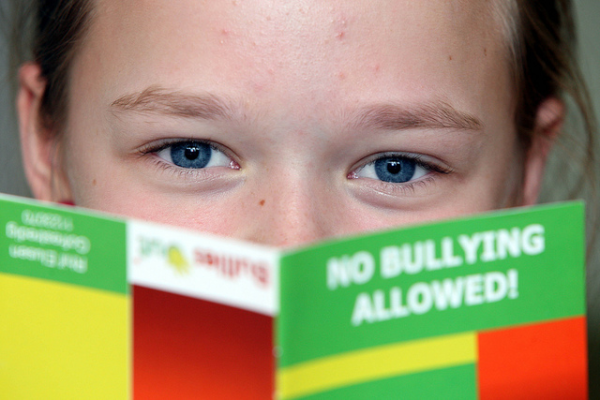
I have written in the past of my own personal experience with bullying. When I was in elementary school, I was picked on by a classmate for my weight and I was an average sized kid. She was battling her own weight issue and her self esteem was deeply bruised. Looking back, it seems like she was trying to knock me down to build herself up.
Thankfully one day there were two classmates in the school bathroom when she decided to verbally attack me and they came to my defense. She never did it again.
While those memories are deeply unpleasant, there is one benefit that I’m taking from it. When it comes to my kids, I am all over bullying like a rash. But what should you do if your child is the victim of bullying and harassment?
Well, the first step is understanding that it can happen to any child. One in seven school kids are victims of bullying at school, and it starts early – at the ages of three and four in some cases. That’s an astonishing statistic. So, I thought I would try and do my bit by outlining some ways that you can approach bullying if you suspect it is happening to your kids.
Have open discussions
How much do you really listen to your kids? If they can come to you about anything and communicate with you, there is a much higher chance they will tell you they are having problems at school. Giving them a platform to discuss their feelings will help them to understand they can come to you with any problems. If you are struggling to get through to them, try one of the many books about bullying that are available. It might encourage an open conversation afterward.
Find out the truth
You need to get the facts of the matter down on paper. Who is doing the bullying? What is it that they are doing, and when are they doing it? Ask your child to explain exactly what happens when they are suffering from victimization and write it all down. Bullies tend to do the same kind of thing over and over again. For example, they might wait on a particular building corner for your child, or use a specific class to throw things at them. Once you have the full picture, you’ll be ready to take it further, if necessary.
Teaching your child to cope
First of all, no child should ever have to ‘cope’ with bullying. That’s not what I am saying here at all. However, a few avoidance strategies can help them immediately, while any other action takes place. Perhaps you could talk to them about avoiding certain areas of the school or playground when the bullies are around. Or, taking a different route to their next class. You could, even, teach them how to react to terrible comments aimed in their direction. A touch of humor – as long as it’s non-aggressive – can often help diffuse a bullying situation.
Help them find resources
If your child is of reading age, then there are plenty of resources aiming to stop bullying out there that can help them. It’s important, where possible, to let them find their own information about dealing with things. It will help empower them and make them feel like they are taking control of their situation. That is exactly opposite to how they feel when they are bullied.
Tell the school
Finally, you should always notify the school about what is going on. While it’s best for your child to try and work through the issues themselves, it isn’t always going to be possible. And, they are going to need support from their teachers. However, it’s important that you do this with your child’s consent. Don’t forget, bullying is about control for the bully, and loss of control for the victim. So, if your child has been bullied, they won’t want any further loss of control. And that, to put it simply, is exactly what will happen if you go to the principal without their blessing.

